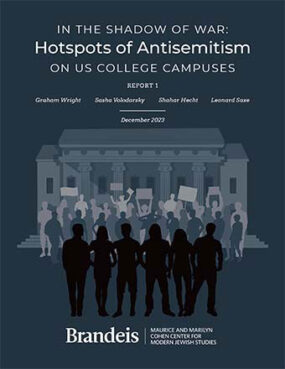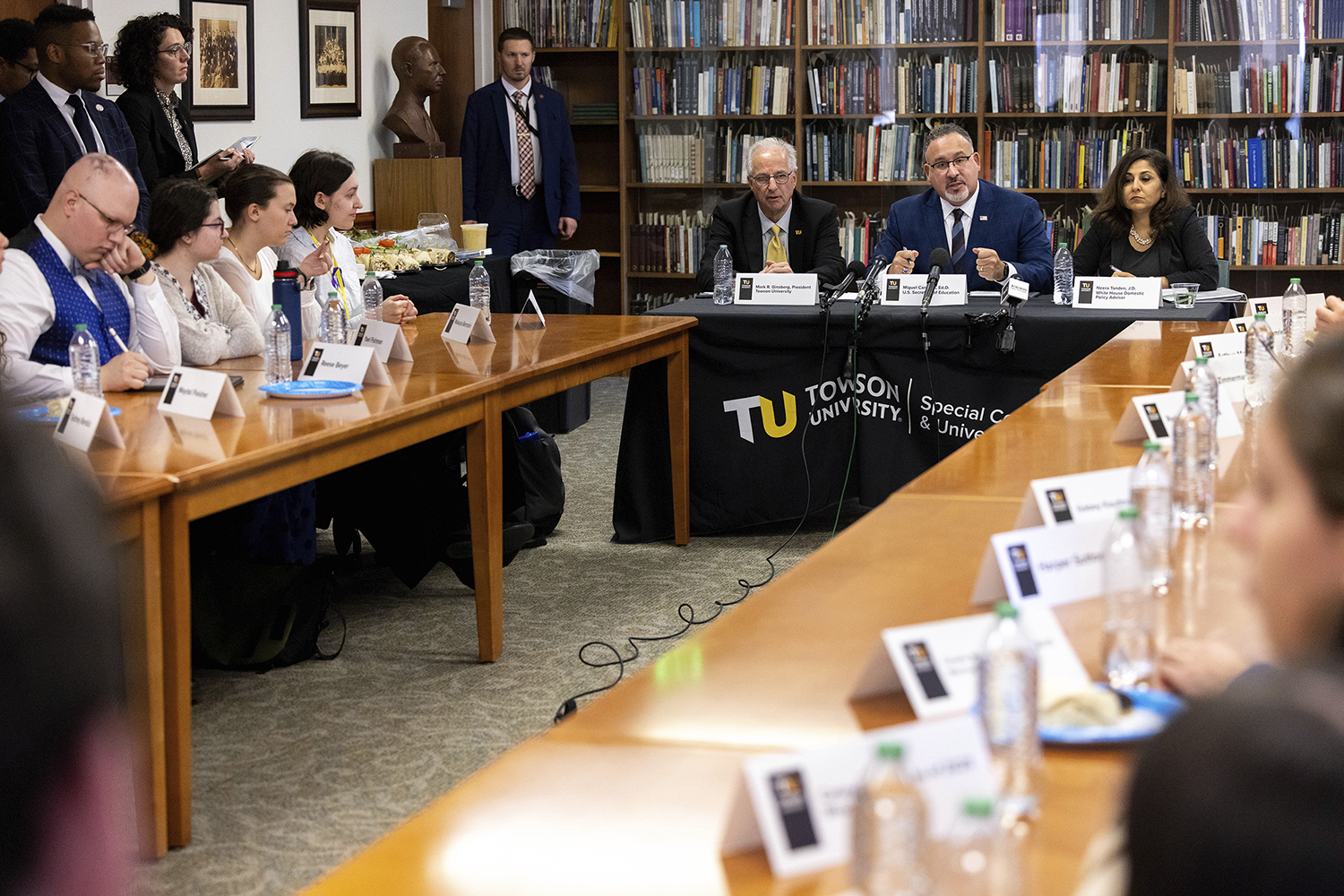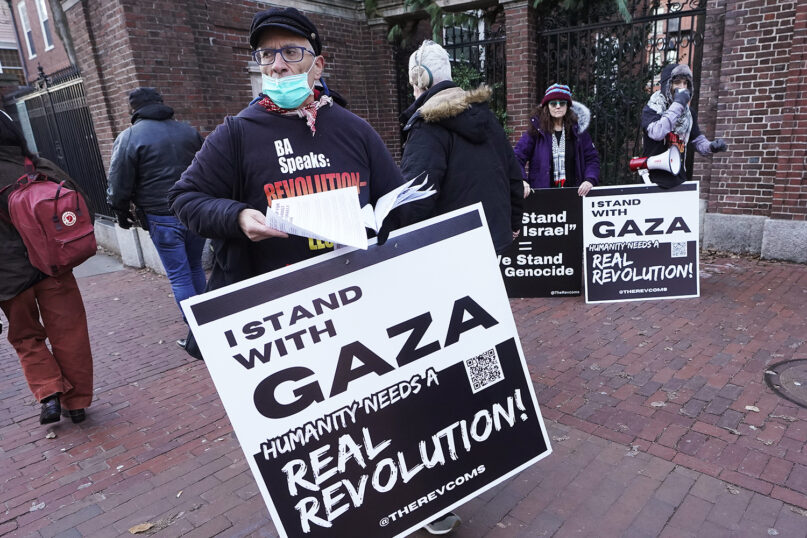(RNS) — One week after a congressional hearing at which three university presidents were roundly criticized for their responses to questions about campus antisemitism, a new survey shows Jewish students’ experiences of hostility on U.S. campuses varies from school to school.
The survey of 51 public and private universities from The Cohen Center for Modern Jewish Studies at Brandeis University found a small number of “hotspot” schools where Jewish students faced a hostile environment.
“At some schools, the vast majority of Jewish students we surveyed reported that there is a hostile climate toward Jews and Israel on their campus, while at other schools, substantially fewer Jewish students feel this way,” the survey concluded.
At last week’s hearing before the House Education and the Workforce Committee, the presidents of Harvard, MIT and the University of Pennsylvania were grilled by lawmakers about campus antisemitism. Their legally parsed responses set off a flurry of condemnation and led to the resignation of Elizabeth Magill, the president of Penn.
At issue was how college presidents are handling accusations that a wave of pro-Palestinian campus protests — amid Israel’s offensive against Hamas in Gaza — had frightened, intimidated and harassed Jewish students.
The U.S. Department of Education has opened 21 investigations into possible antisemitic or anti-Muslim discrimination at colleges and universities since the Oct. 7 Hamas attack. The investigations will look at violations of Title VI of the Civil Rights Act of 1964, which prohibits discrimination based on shared ancestry or ethnic characteristics.
The survey of nearly 2,000 Jewish students at private and public universities, fielded from mid-November to early December, showed Jewish students from schools such as Columbia, New York University, the University of Pennsylvania and the University of California, Berkeley, experienced the most hostility, while Jewish students at schools such as Duke, Pennsylvania State, the University of Florida, Brandeis and Tulane experienced far less hostility.

Report cover for “In the Shadow of War: Hotspots of Antisemitism on US College Campuses,” a study by Brandeis University. Cover courtesy Brandeis University
The survey was not representative of all Jewish college students since it only sampled students who applied for a Birthright Israel trip. Birthright is a nonprofit organization that offers Jews a free 10-day heritage trip to Israel beginning at age 18. (Of the survey respondents, 56% of the students actually participated in the Birthright Israel trip; the others applied but hadn’t taken the trip.) Students who apply to Birthright tend to be more invested in their Jewish identity and view Israel more sympathetically.
Students were questioned based on an “index of hostility” that included three questions: the extent to which they agreed that there was a hostile environment toward Jews at their school, the extent to which they agreed that there was a hostile environment toward Israel at their school, and their level of concern about antisemitism on their campus.
RELATED: Democrats fracture over antisemitism vote

Education Secretary Miguel Cardona, domestic policy adviser Neera Tanden and Towson University president Mark Ginsberg meet with students during a visit to Towson University to discuss antisemitism on college campuses, Thursday, Nov. 2, 2023, in Towson, Md. (AP Photo/Julia Nikhinson)
Each school was assigned a ranking based on its average score of “antisemitic hostility” to the three questions: high, above average, below average and low.
At schools with the lowest levels of antisemitic hostility, a sizable chunk of students still at least somewhat agreed that there was a hostile environment toward Jews (49%) and, more so, toward Israel (63%). At the schools with the highest reported levels of antisemitic hostility, 85% of respondents agreed at least “somewhat” that there was a hostile environment toward Jews at their school and 94% toward Israel.
Less than 2% of students said they experienced physical attacks.
Overall, students were more concerned about antisemitism related to Israel than they were about antisemitism related to their Jewish faith.
Only a minority of students reported encountering hostility toward Israel from university administrators or faculty. The vast majority of hostility toward Jewish students came from fellow students.
RELATED: Biden calls ‘surge’ in antisemitism ‘sickening’ during White House Hanukkah reception





